You
may not find this terribly rewarding unless you're included here, so this
is a good time for casual and random browsers to turn back before they
get too caught up in the sweep and majesty of the proceedings and can't
let go.
Pompeii, still in ruins. Even more so now.
We're installed in Naples for a week, and we're determined to see everything. So here's our day in Pompeii.
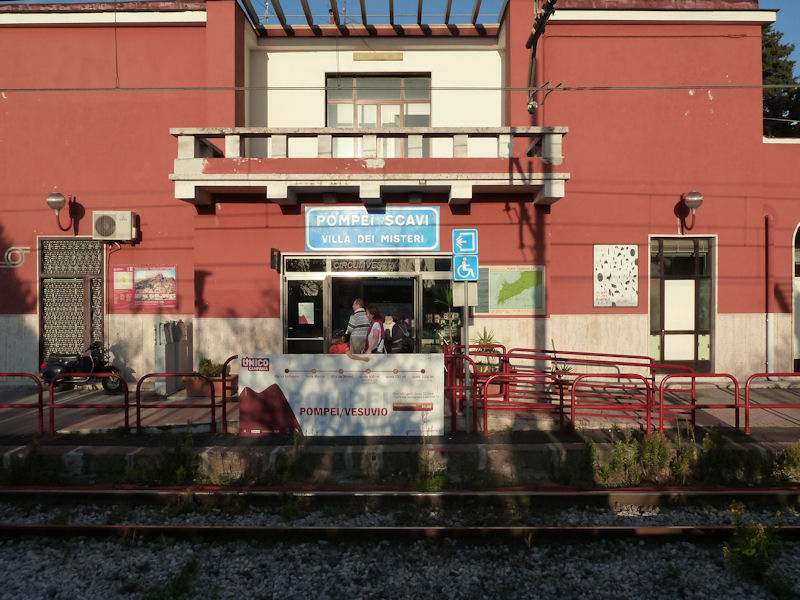
The Circumvesuviana train leaves from its own terminal in Naples and drops us less than an hour later at the Pompeii Excavations station.
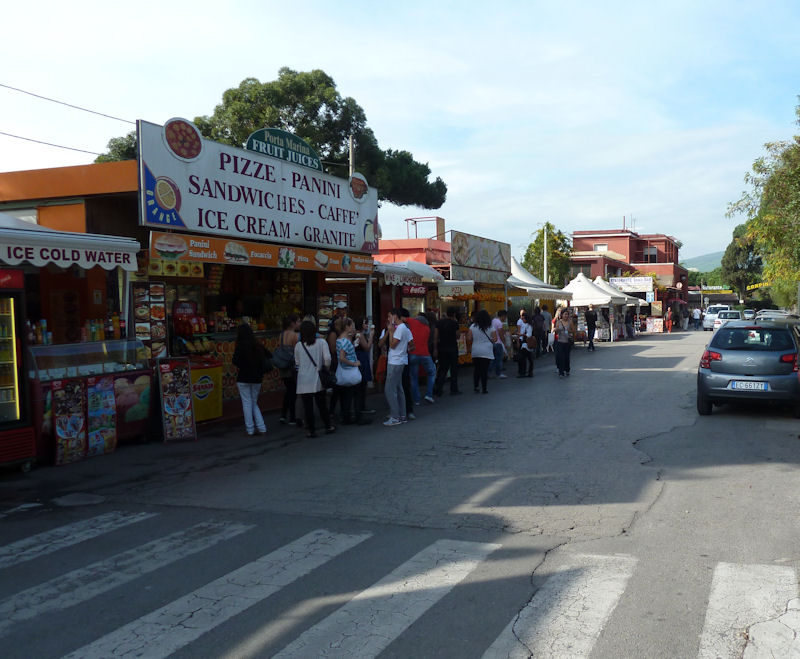
We're mad keen to see the ancient ruins, but first things first.
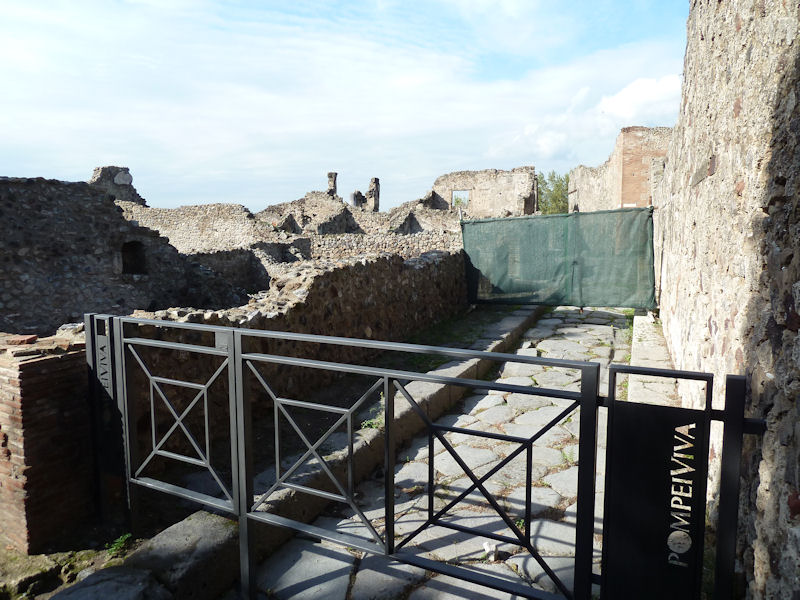
Bursting with enthusiasm
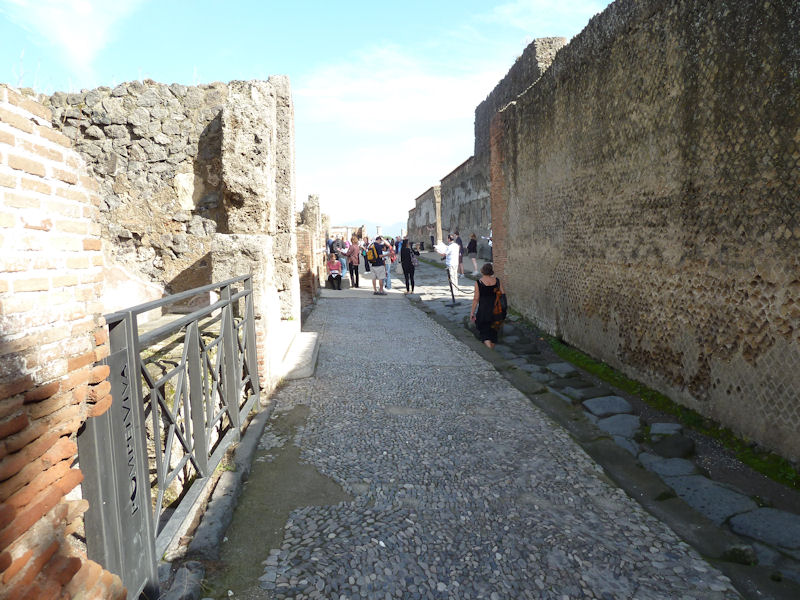
We're rushing in to see the enormous Forum, the temples, the Lupanar and all the other brothels, the patrician houses like the Casa dei Vettii brothers, the Villa of Mysteries, all the cobbled roads, and especially the House of the Gladiators.
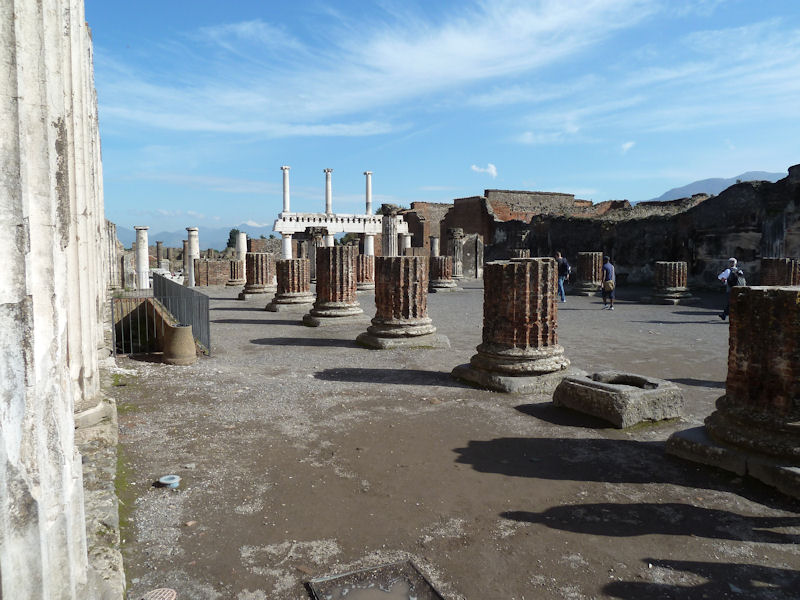
Everyone knows the story of Pompeii. A minor city, founded in the 7th century but acquiring Roman colony status only in 80 B.C., whacked first by an earthquake in A.D. 62 and then, as earthquake repairs were still underway, buried by the volcanic eruption of Mount Vesuvius in 79.
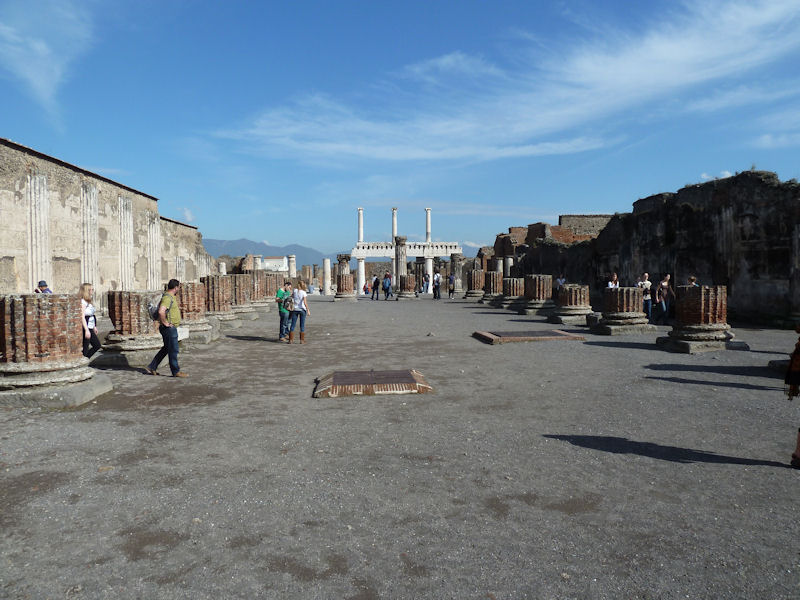
This is the Basilica in Pompeii, formerly housing the city administration, law courts, stock exchange, and what not.
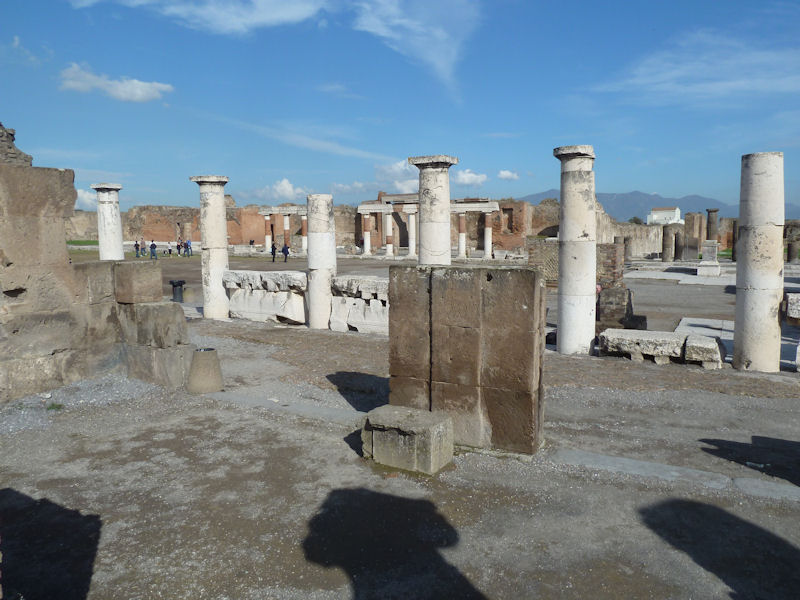
What makes Pompeii and Herculaneum so special is that, rather than just surviving remains of monumental amphitheatres, baths, and triumphal arches, these towns preserve the structure of pretty much an entire city and make it much easier to try imagining daily life in ancient days.
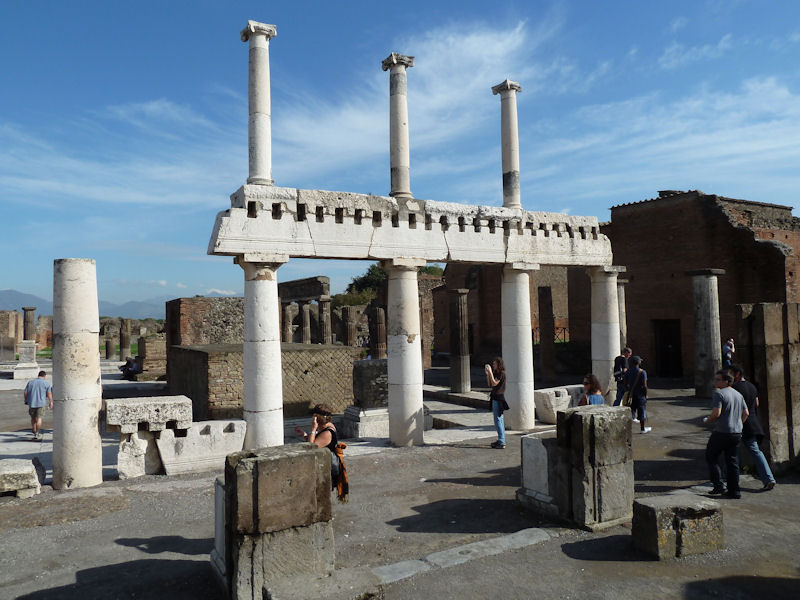
We're wandering. We don't know where to go. It's all so overwhelming. And we don't have an audio guide!
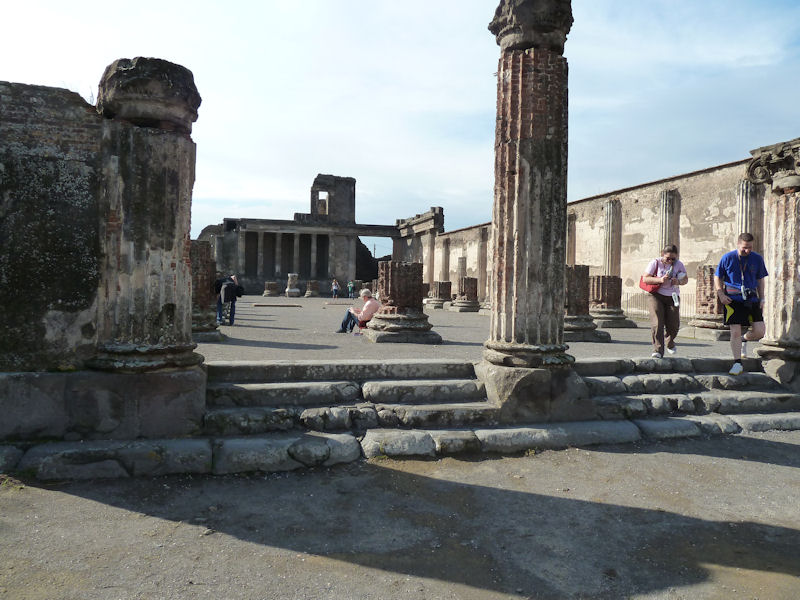
A look back at the Basilica, just next to the Forum. Where should we go next?
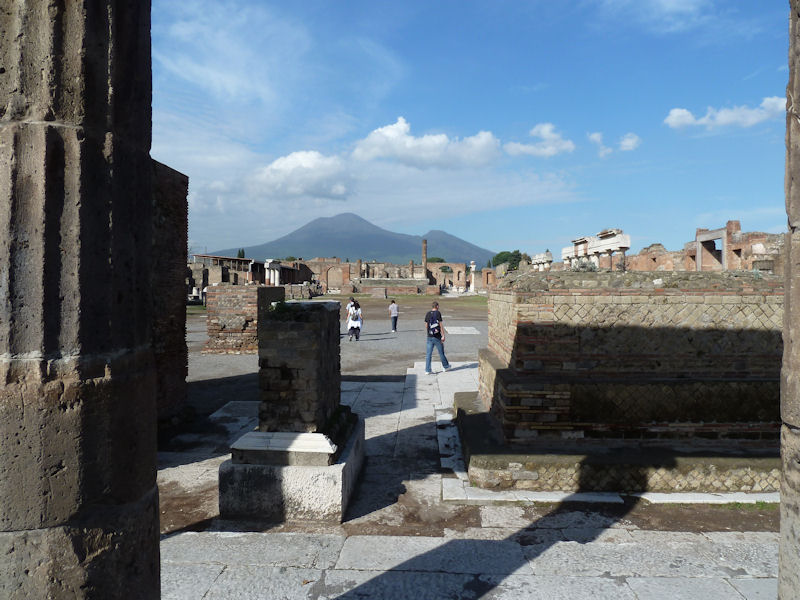
There's the Forum, easily recognized. With Mount Vesuvius lurking guiltily.
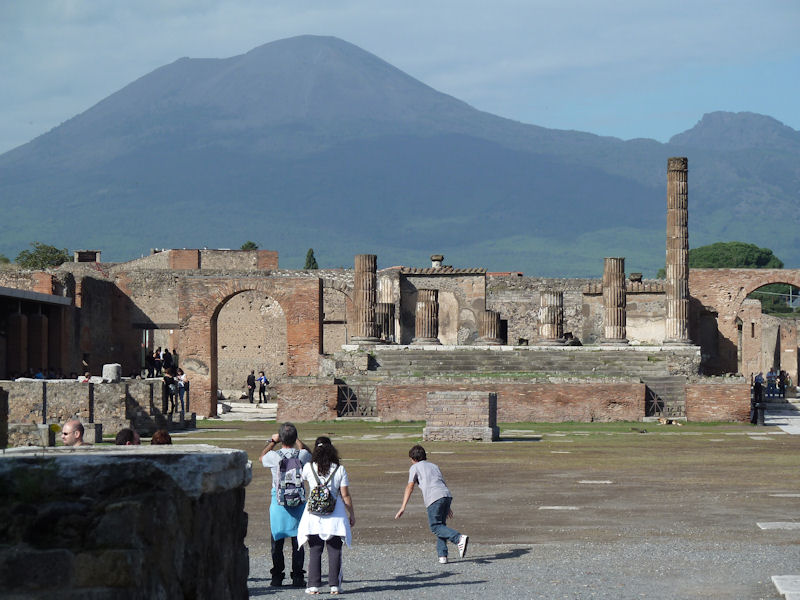
The Temple of Jove at the head of the Forum, and Vesuvius. It's easy to see the problem.
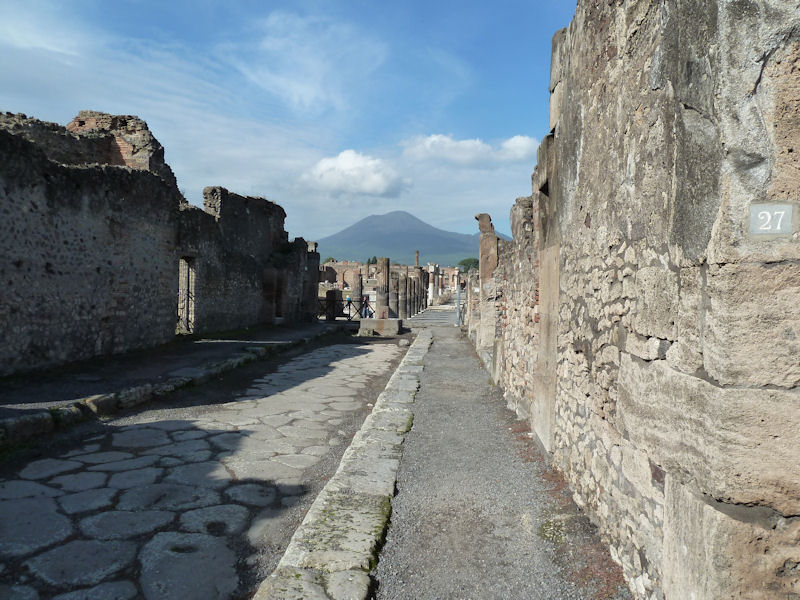
Now we're off down a nearby street. But why is no one else here? Where's the action? We must have gone the wrong way.
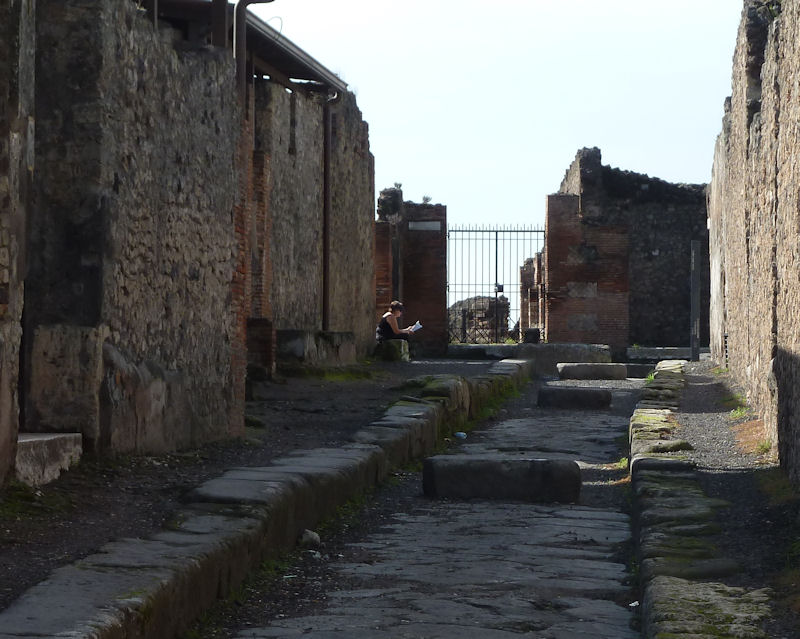
Now we're seriously remonstrating with ourselves for not having hired audio guides. So back we go to the entrance, for audio guides and another panino.
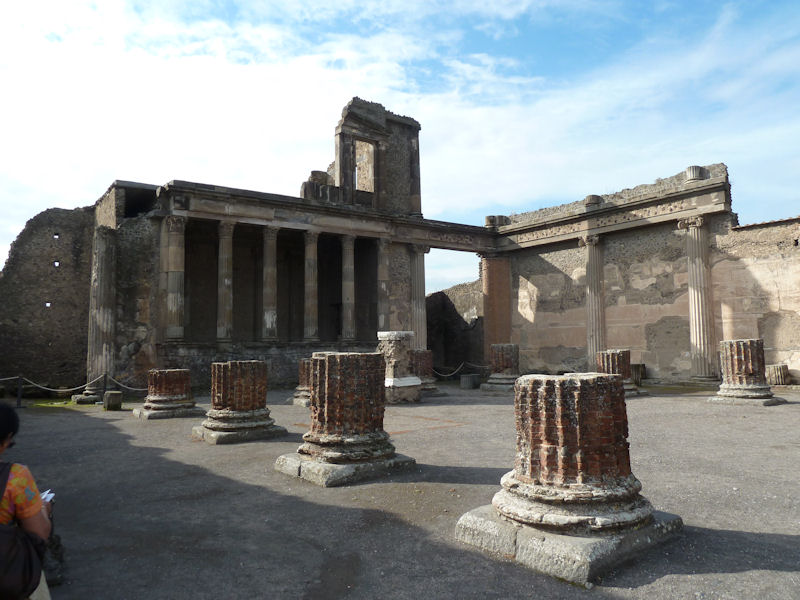
Back again, suitably fortified and straining to catch every word of the audio commentary, we pass through the Basilica again. This time with a purpose, and numbers to follow.
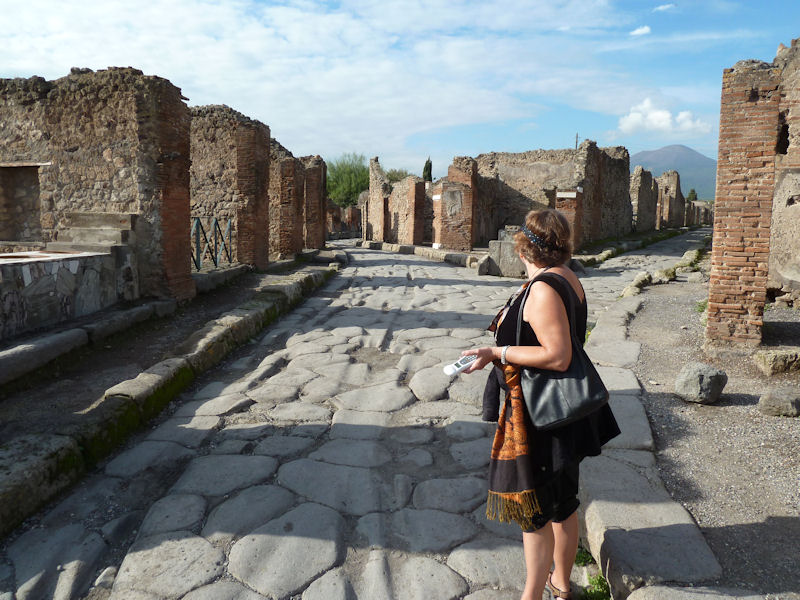
Though we're soon lost again. Many of Pompeii's chief roads have ancient wagon ruts worn into them. Herculaneum doesn't have ruts, and the guidebook speculates that the Herculaneites just made porters carry everything on their shoulders.
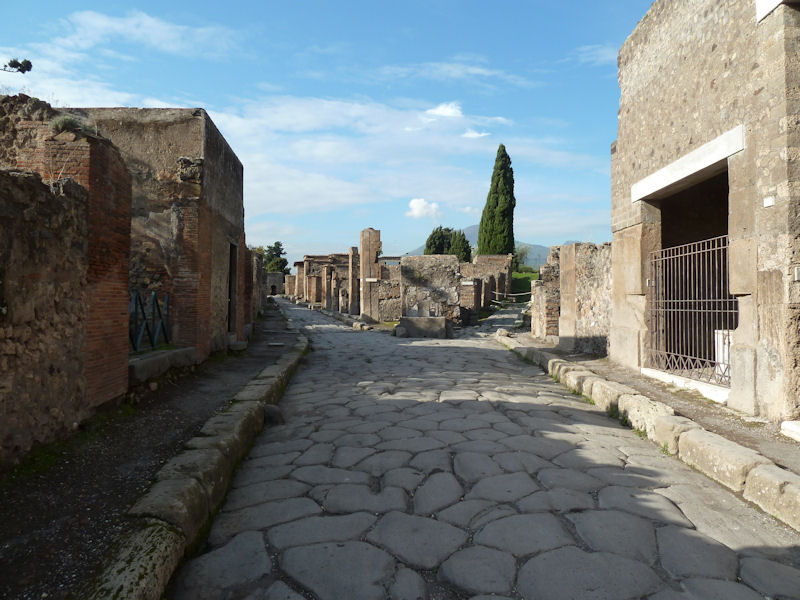
Actually we're seeking out the Villa dei Misteri, just a ways outside the Porta di Ercolano, the city's gate on the road to Herculaneum. To the left here.
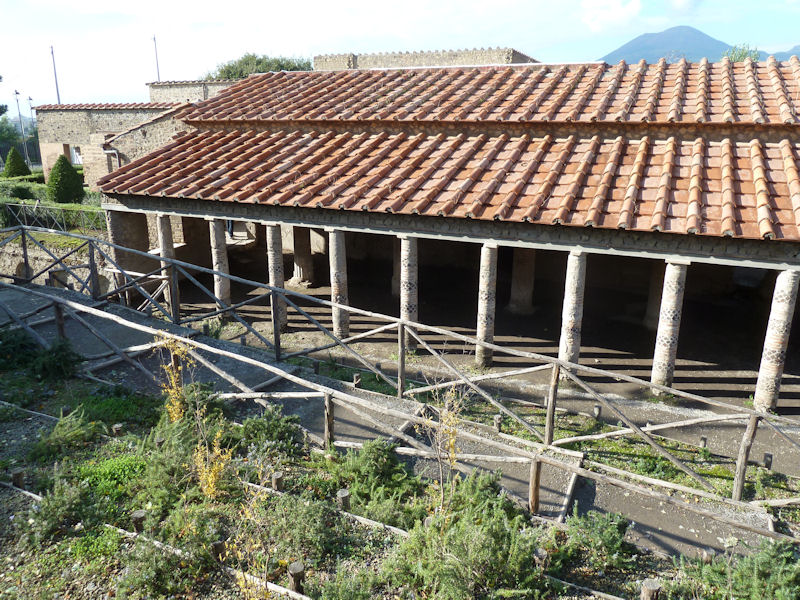
The Villa of Mysteries lies just outside the city walls, along a road lined on both sides with the sepulchres of the old families; that's cheerful.
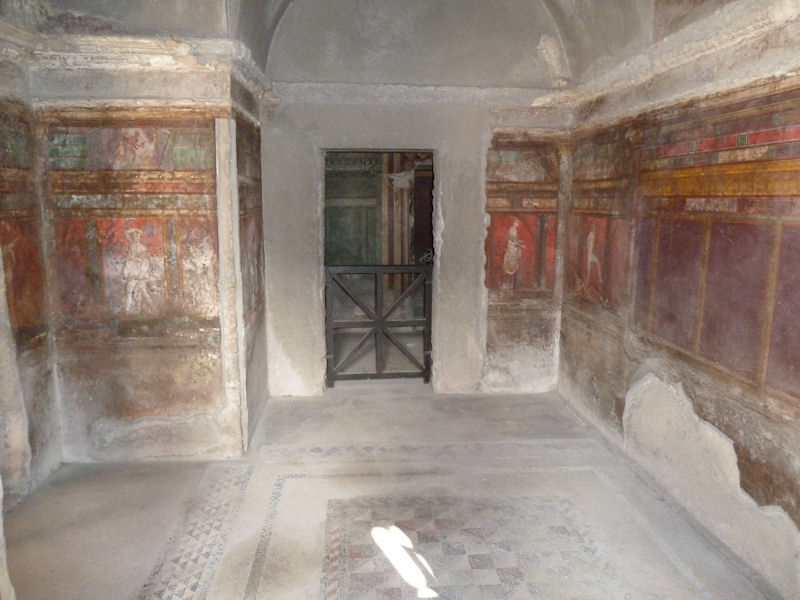
The villa is best known for its well-preserved frescoes, but it's also got wine presses, a great floorplan, gardens, etc.
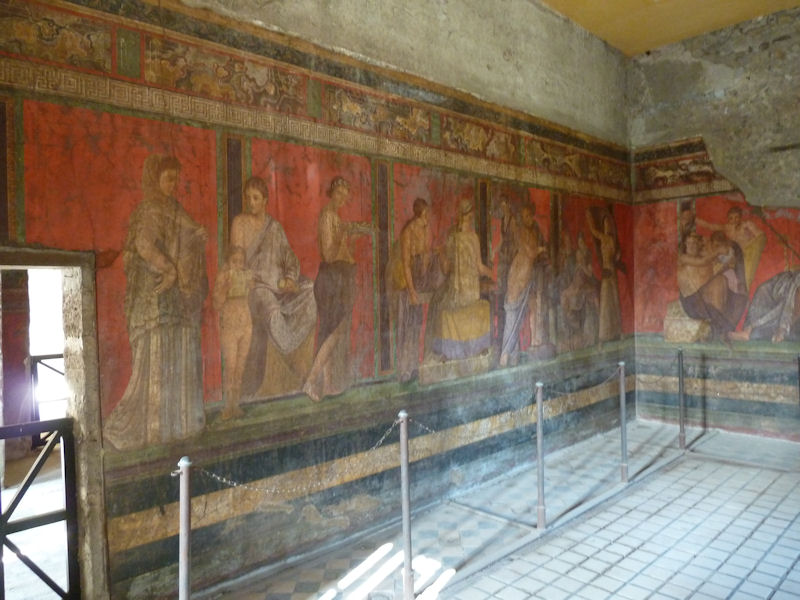
But this is the most famous of the frescoes, in the dining room, or triclinium. Oh my goodness. It depicts, from left to right, a young girl being initiated into the mysteries, or sacred rites, of the Dionysian cult. Yikes. Whilst people are having a quiet family dinner.

There's some fairly strange stuff going on round the walls of this triclinium.
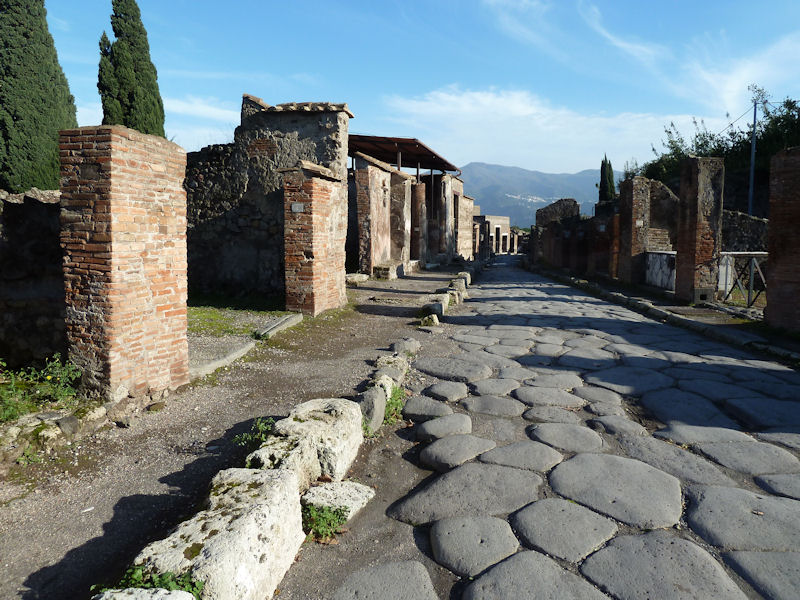
Back into town. Lots to see, but it's all too much for one day. Vettii, Dioscuri, Lupanare, theatres and baths, we can't get to it all. What about the House of the Tragic Poet? And the House of the Gladiators?
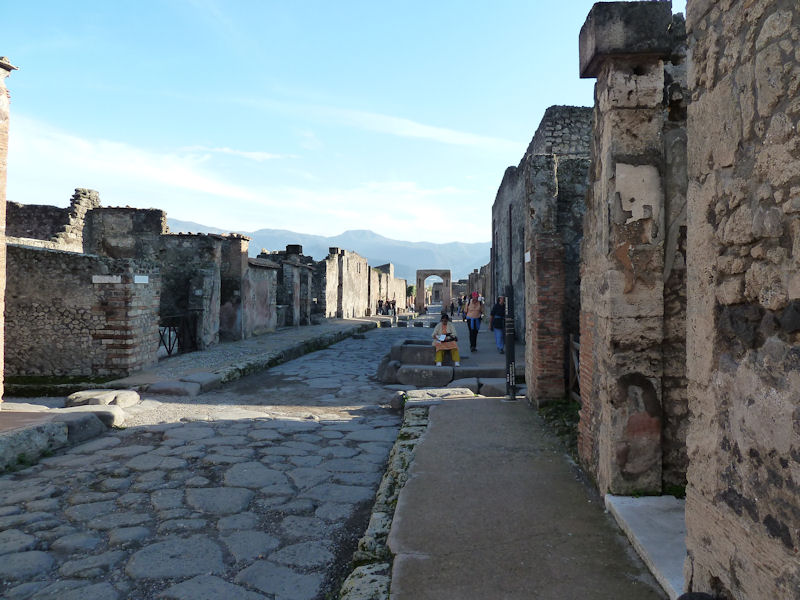
We're crossing the Via dei Mercurio, looking for the Casa dei Dioscuri, or House of the Gemini twins, Castor and Pollux.
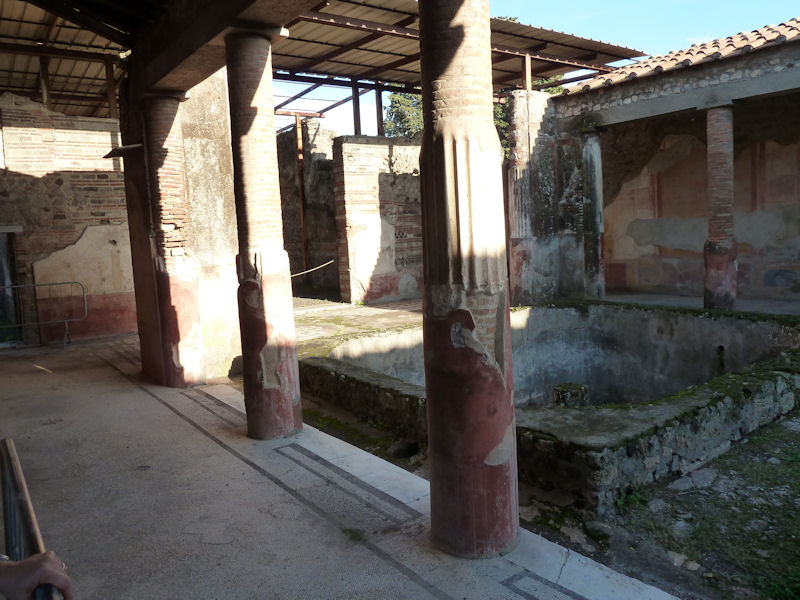
One of the houses along the way, I can't recall which one: it might by the Casa di Sallustio. Or the Dioscuri.
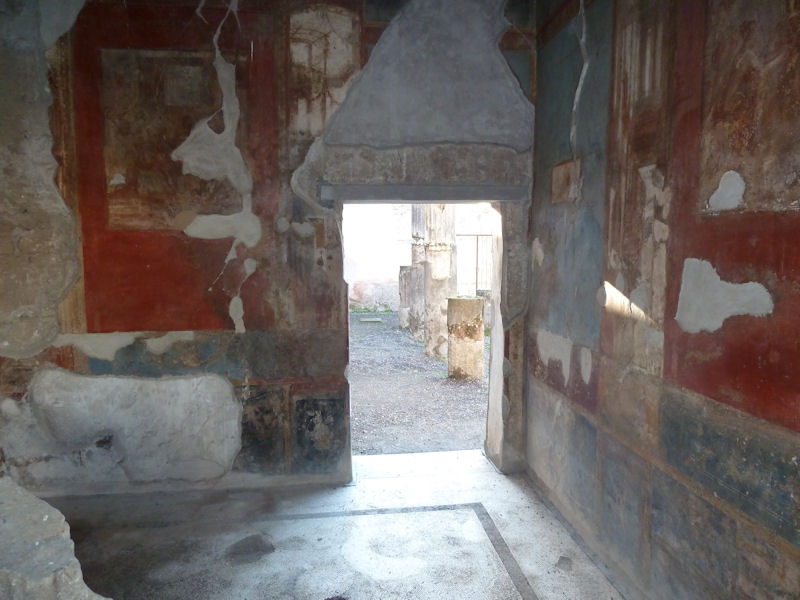
Frescoes everywhere.
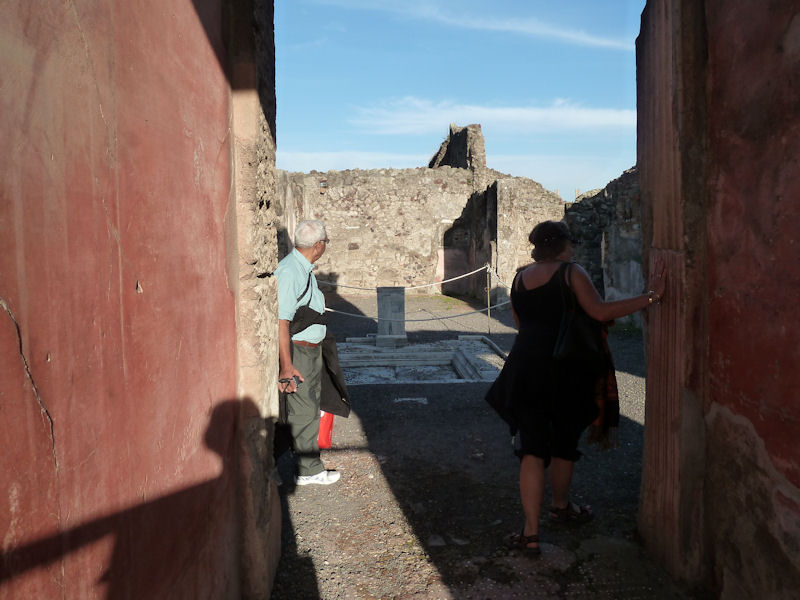
"And then gunshots rang out." Not really.
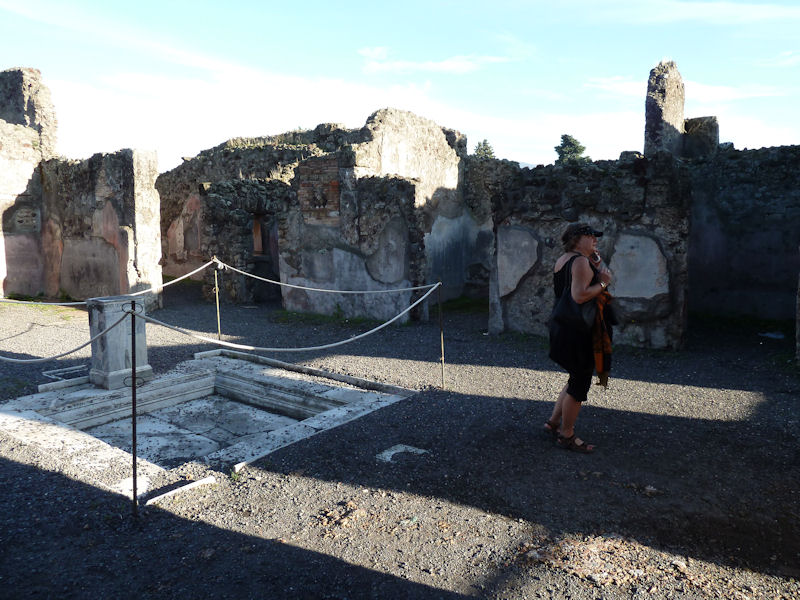
Nice impluvium.
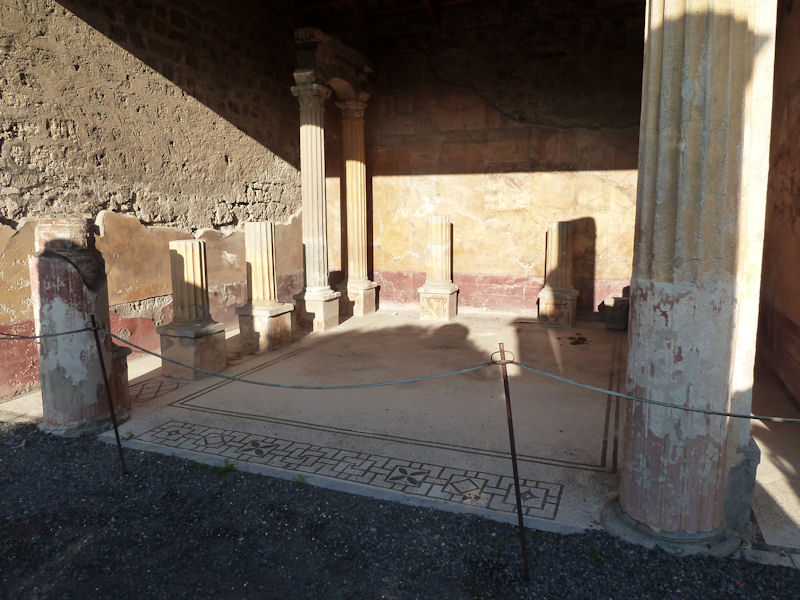
This is certainly not the Casa dei Vettii, because that (and the road it's on) was closed for urgent repairs.
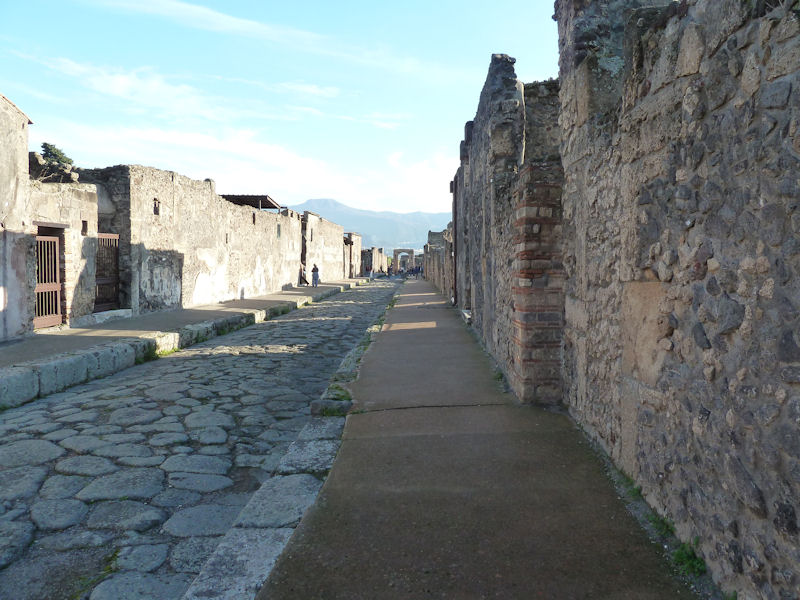
A glance along one of the two north-south arteries, the Via dei Mercurio and Via del Foro.
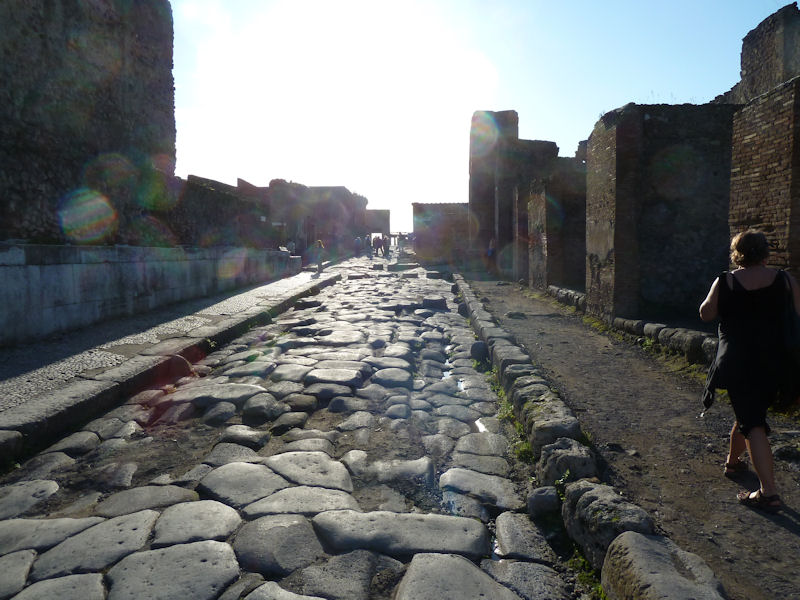
Along this way, we're looking for more treasures on our folding map of the city, and eventually, we hope, the House of the Gladiators. But we're fading badly after a long afternoon.
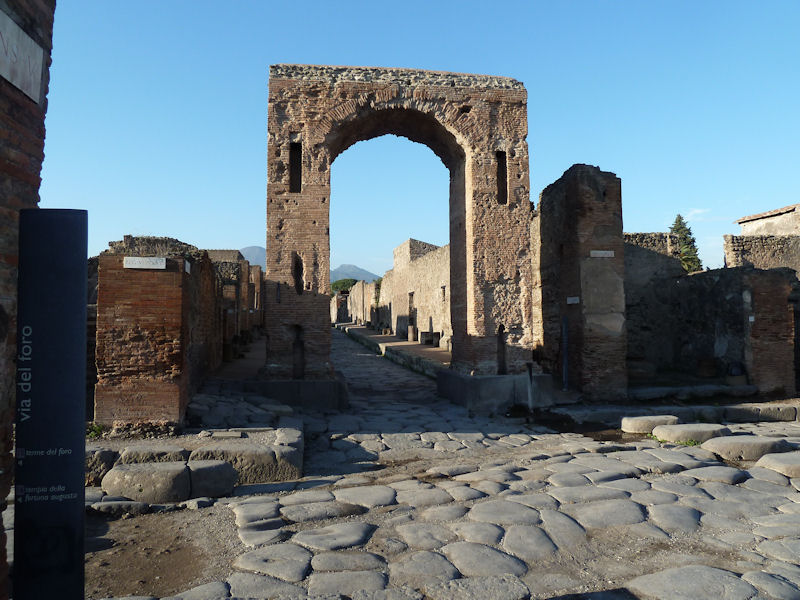
A gate at the Via del Foro
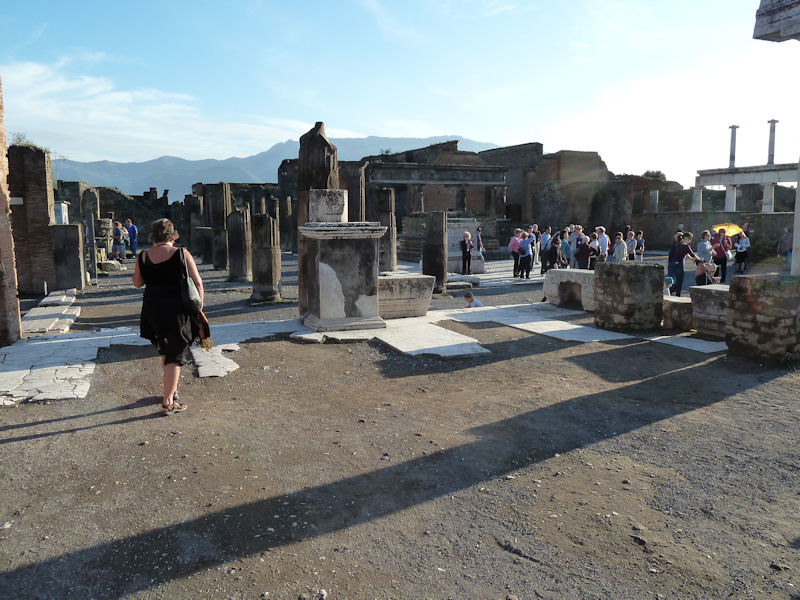
Back into the Forum. We didn't have time, in the end, to see the House of the Gladiators, which is a pity, because two days later it collapsed, and that's the end of it. True thing.
Everyone blames the Berlusconi government for underfunding national monuments. The UNESCO World Heritage Convention is sending a team of experts. The President says that it's "a shame for Italy". Well, imagine how WE feel! Still, it was a great day.
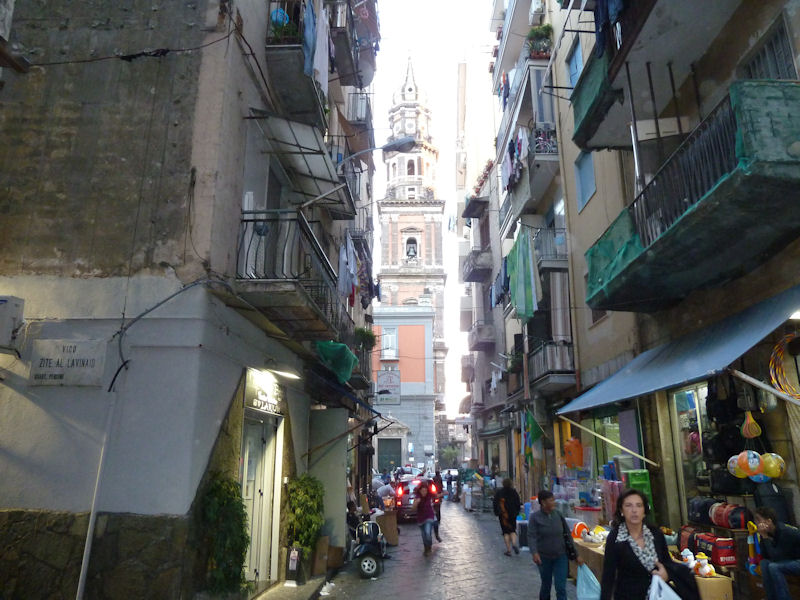
We're walking home from the Circumvesuviana train station on Via Garibaldi, and that's the Piazza Carmine coming up.
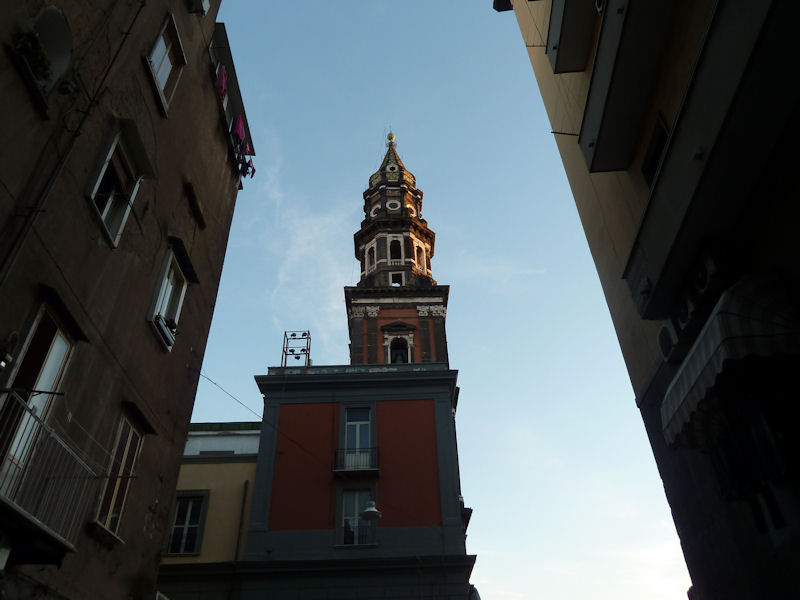
The campanile of the church of Santa Maria del Carmine
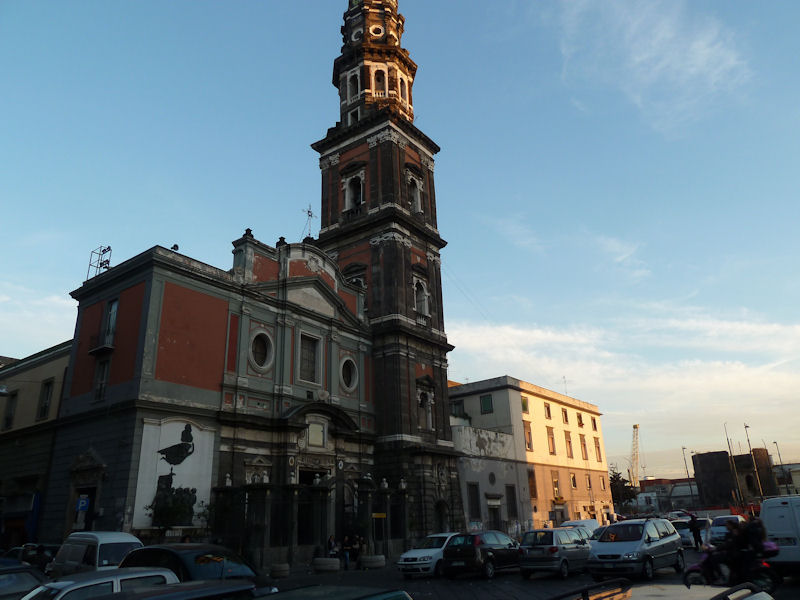
The Piazza Carmine and church and the port facilities just behind them
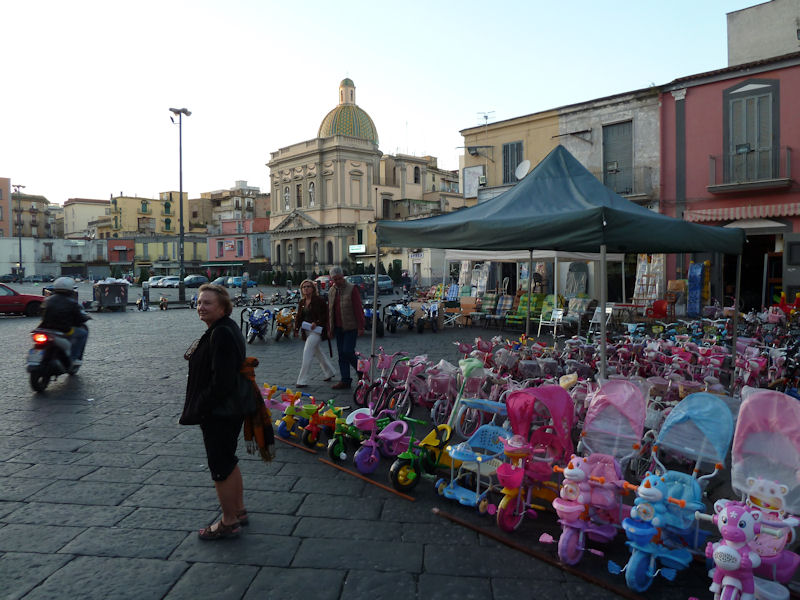
The Piazza Mercato, the town's commercial centre in the 13th century
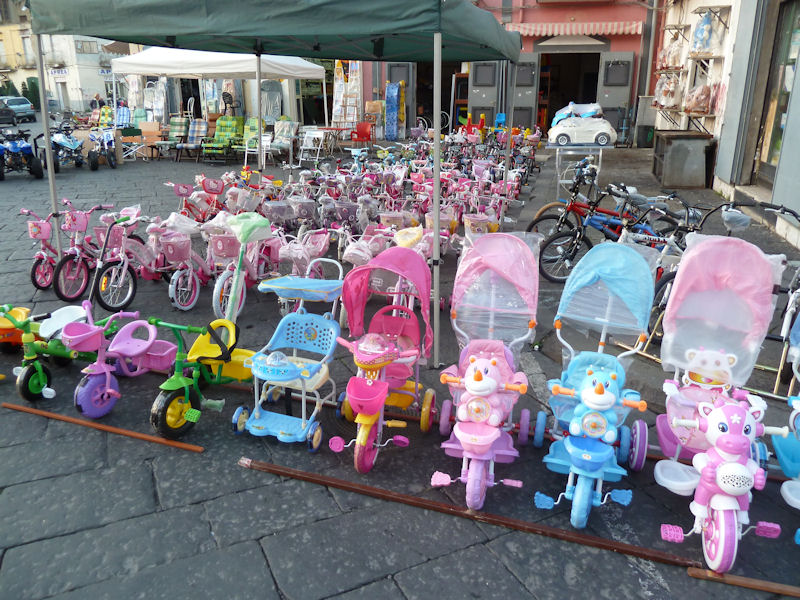
-- Kids, start your engines.
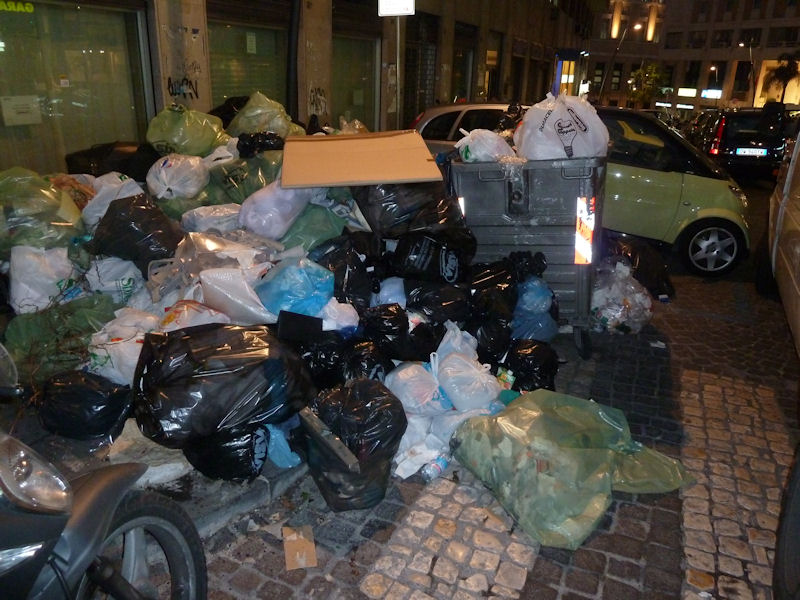
A fascinating day at the ruins of Pompeii and a nice walk home through modern Naples
 Dwight Peck's personal website
Dwight Peck's personal website





































